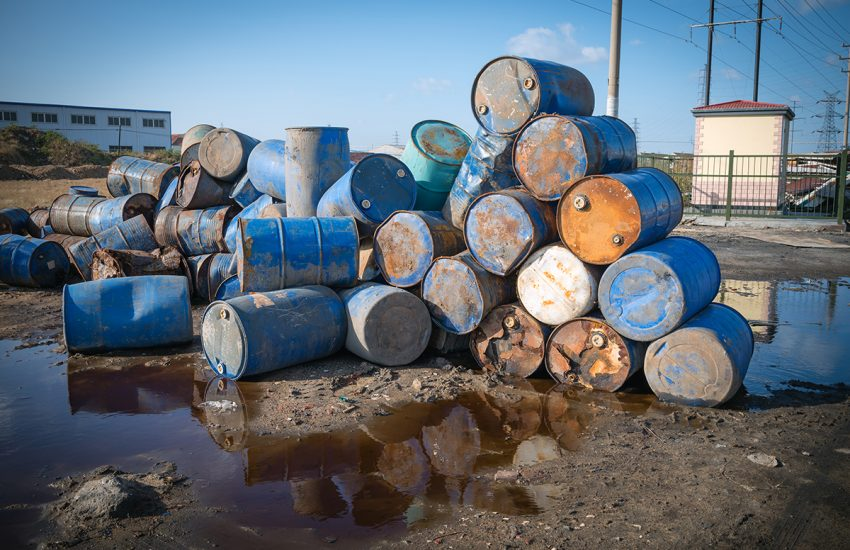
United States Environmental Protection Agency Audit Policy: 101
The Environmental Protection Agency (EPA) is committed to protecting and preserving the environment for all of us, which means ensuring that businesses across the country are following EPA policies. To do this, the agency performs audits on companies in order to ensure compliance with EPA standards.
This includes checking documents and records, sampling chemicals and other materials, evaluating waste management practices, testing equipment, observing production processes, interviewing employees, etc. The goal of each audit is to identify any potential violations or areas of non-compliance with the law.
After completing an audit, the EPA will issue a report outlining its findings and recommendations. Typically, the report will include areas of non-compliance, along with suggestions for corrective action to ensure compliance in those areas. Companies are then required to submit a written response to the audit and provide evidence that steps have been taken to address any issues identified by the EPA.
It is important for companies to be aware of their responsibility and obligation when it comes to environmental protection. The Environmental Protection Agency Audit Policy provides businesses with an opportunity for self-evaluation and proactive strides towards ensuring compliance with all relevant regulations and laws. As such, it is essential that companies remain up-to-date regarding changes in policy or procedure, regularly review their operations and practices, and work diligently to resolve any violations or problems discovered during audits. By doing so, companies can help to ensure a safe and healthy environment for everyone.
An important part of the Environmental Protection Agency Audit Policy includes being able to respond effectively to any audit report issued by the agency. Companies should contact an environmental attorney who is knowledgeable about the requirements outlined in the EPA’s Audit Policy, as well as any applicable state or local laws that may be relevant. In addition, they should develop a detailed plan of action outlining how they intend to resolve any issues identified during an audit and provide evidence of their compliance with all applicable standards. By doing so, businesses can help demonstrate their commitment to protecting the environment and set a positive example for others in their industry.
At the end of the day, businesses have a responsibility to protect the environment and ensure compliance with all applicable laws. Companies who take advantage of this policy are helping to set a positive example for others in their industry and create a healthier future for everyone.

EPA’s Interim Approach to Applying the Audit Policy to New Owners | US EPA
The Environmental Protection Agency (EPA) has developed an Interim Approach to Applying the Audit Policy to New Owners, which provides tailored incentives for new owners of facilities that have been found to be non-compliant with environmental laws prior to acquisition. This approach allows new owners to make a “clean start” by addressing any noncompliance that began before they obtained ownership of the facility.
This Audit Policy incentives include compliance assistance and technical advice, potential reduction in penalties and civil enforcement actions, reimbursement for environmentally beneficial projects, and protection from certain criminal prosecution related to pre-acquisition violations. These incentives are designed to encourage responsible parties at newly acquired facilities to address existing noncompliance issues quickly and effectively through voluntary disclosure or corrective action. By taking advantage of EPA’s Audit Policy incentives, new owners can ensure compliance with environmental statutes and make a fresh start.

What are the benefits of an EPS audit?
The EPA believes that having audits conducted allows organizations to make better-informed actions, optimize performance levels, and ensure sustainable success over the long term..
An EPS audit is a valuable tool for assessing the financial health of an organization. It provides an objective overview of a company’s performance and can help identify areas where improvements or corrective actions may be needed. An EPS audit can also serve as an key preventative measure, providing insight into potential problems before they become catastrophes.
At the same time, it can help to enhance processes and procedures that are already in place by giving management a comprehensive look at their current operations and financial position.

What types of companies are required to perform and environmental audit?
Environmental audit reports are useful to a variety of businesses and industries, local, state and federal government facilities, as well as financial lenders and insurance companies that need to assess environmental performance. Audit reports can be extremely useful for businesses, governments, and financial lenders in understanding the environmental performance of a given facility. They provide detailed information on air emissions, water usage, waste management systems, hazardous materials management practices and storage procedures.
This data is key to ensuring that facilities are meeting regulatory requirements and following industry best practices. Additionally, environmental audit reports may be necessary to meet contractual requirements with customers or other third parties. Finally, financial lenders may use these reports to assess risk associated with a particular project or investment opportunity in order to make informed decisions on whether to lend money or not. Ultimately, environmental audit reports are an essential part of ensuring continual compliance as well as business sustainability.

Who conducts EPA audits?
EPA audits can be conducted by internal auditors, external auditors, and third-party verification organizations.
Internal auditors usually have knowledge and expertise in the specific area being audited, such as environmental protection, energy efficiency or sustainability. External auditors are independent third-party experts who assess and evaluate compliance with EPA ordinances Finally, third party verification organizations provide impartial assessments to verify the effectiveness of an organization’s systems for meeting specific standards. Each type of audit provides its own unique benefits, ensuring that thorough and comprehensive evaluations of facility operations take place.
Through careful review and assessment of procedures, policies and practices, these audits ensure that organizations remain compliant with EPA statutes.

How often are EPA audits required?
Once every three years.
According to the regulations at 40 CFR §§68.58(a) and 68.79(a), owners or operators must certify that they have completed a compliance evaluation of their prevention program every three years in order to ensure that established procedures and practices are adequately maintained and followed.
This process requires the tangible review of all applicable documents, including but not limited to safety protocols, emergency response plans, operating manuals, training records, inspection reports and other relevant documentation.
By completing this certification process on a regular basis, owners or operators can maintain regulatory compliance while helping to protect their employees and fix environmental issues.
What is an environmental audit protocol?
Audit protocols can help facilities evaluate their compliance with environmental laws. They provide guidance on how to develop a plan of action to address any issues and may include information on testing, monitoring, or other practices that are necessary for the facility’s success in meeting environmental requirements.
The protocols should be seen as a supplement to existing permits, statutes and laws; however, these guidelines must still be followed in order to ensure legal compliance. Audit protocols also provide a framework for more efficient evaluation of compliance status, helping facilities save time and resources when assessing their operations.
Why is it necessary for businesses to be sustainable?
Sustainability is becoming increasingly necessary in the business world, as businesses look to adopt greener technologies and practices that benefit both their bottom line and the environment. Sustainable businesses are able to make better use of resources while reducing costs, resulting in greater profits and job security for employees. Smaller businesses can also benefit from sustainable practices, as they often find it difficult to compete with larger organizations due to lower capital investments. An example of such is the The Clean Air Act (CAA) (42 U.S.C. 7401 et seq.) is a comprehensive Federal law that regulates all sources of air emissions.
By adopting more efficient methods and technologies, smaller businesses have the potential to become competitive players in the market. Furthermore, sustainability has a positive impact on employment by ensuring better working conditions for employees; this helps create a more stable economy and helps protect human health. Ultimately, sustainability is essential for creating an economically viable future for businesses, employees, and the environment. By taking strides towards a more sustainable business model, companies can create long-term value for their stakeholders and ensure a brighter future for everyone.
Need help?
Our team of experts can help you with whatever compliance issues you may be facing. Whether it is understanding the complexities of a given regulation or recognizing where your company needs to improve, we have the necessary skills and experience to provide assistance. We will take the time to understand your unique needs and develop tailored solutions that address those needs. For facilites looking for help navigating the often perplexing regulatory landscape, contact us today!
Need Assistance?
Does this new change pertain to your company? Our team can help you figure it out and can help with other air compliance issues.